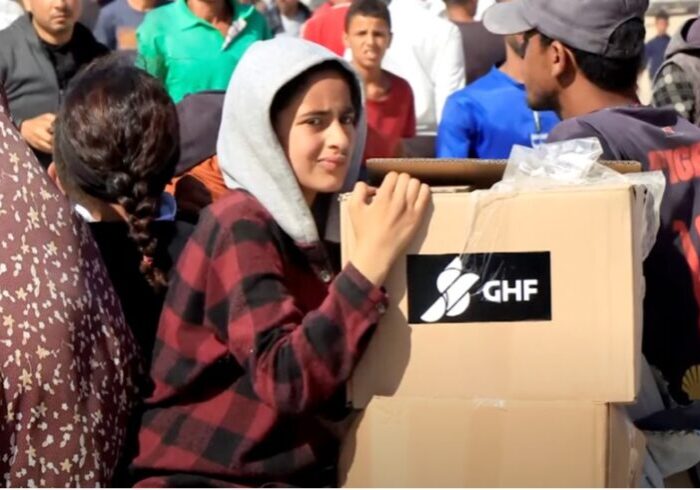Australia/Israel Review
Asia Watch: Collateral damage
Nov 24, 2023 | Michael Shannon

Among the denunciations of Israel currently emanating from major cities worldwide, some of the most vociferous have come from Malaysia, yet the zealousness carries a cost.
Prime Minister Anwar Ibrahim has refused to condemn Hamas’ attacks on October 7, labelling Israel an “occupier” and calling its actions in Gaza “barbaric”. Routinely attacked by his domestic opposition for insufficiently defending the rights of Muslims, Anwar has travelled to the region to show solidarity with the Palestinians, and conferred with Turkey and other governments in search of a ceasefire.
But diplomatic pressure from the US for Malaysia to label Hamas a terrorist group, followed by the introduction of a bill in US Congress to impose sanctions on countries financially supporting Hamas and other Palestinian terrorist groups, has prompted Anwar to double down.
While conceding that trade could take a hit if Washington were to sanction Kuala Lumpur under the proposed bill, Anwar said the act would not influence Malaysia’s policies. “We would continue our relationship with Hamas and we do not view Hamas as a terrorist organisation,” he said.
At the political level, Malaysia has hosted Hamas leaders Khaled Mashal and Ismail Haniyeh, while former PM Najib Razak met Hamas’ leaders in Gaza in 2013. Furthermore, Hamas has been active in Malaysia. US analyst James Dorsey, writing in Modern Diplomacy, noted that the Kuala Lumpur-based Palestinian Cultural Organisation Malaysia (PCOM), which organises well-attended public events joined by prominent intellectuals, journalists, and civil society figures, also serves as Hamas’ “unofficial embassy” for public outreach and fund raising.
Palestinian engineer Fadi Mohamed Al-Batsh, alleged to be a key player in Hamas’ weapons development, was assassinated by suspected Israeli operatives in Kuala Lumpur in April 2018. Media reports said that Al-Batsh helped Hamas develop its rocket and drone arsenal and may have been negotiating an arms deal with North Korea.
Back in 2014, the Israeli military said that a captured Hamas commander had told Israel’s domestic intelligence service that he was one of ten fighters who trained in Malaysia in the use of motor-powered hang gliders – an ominous portent in light of the October 7 attacks.
Over recent weeks, Malaysians have expressed their solidarity with Palestinians through several rallies, including one that Anwar attended along with 20,000 people.
But not all expressions of solidarity have been universally welcomed. A viral video and series of photos showing Malaysian students and teachers brandishing toy firearms and wearing keffiyeh scarves while waving Palestinian flags, including a pro-Hamas banner, prompted accusations that the Ministry of Education was politicising schools by introducing a Palestine Solidarity Week (Oct. 29 to Nov. 3) at all educational institutions nationwide.
Civil society NGOs have warned of schools sowing seeds of hatred in the minds of impressionable students, citing a recent incident where young students stomped on an Israeli flag at their school, while on Facebook, activist and lawyer Siti Kassim said the solidarity week in schools had already gone out of control. “Are we training Jihadis now in our schools? What’s with the weapons and all?” she asked.
The father of an eight-year-old autistic child told BenarNews that he knew the event would not go well when he saw the school’s request that children wear white T-shirts and bring a toy gun with them. “The reason I did not speak out was because I did not want my son becoming a target. He needs to be in the school as it’s the only available school for him,” he said.
Meanwhile, calls for boycotts against companies with alleged links to Israel have been strong on social media platforms such as X, TikTok, Instagram and Facebook. High profile targets are American food franchises – including McDonalds, Starbucks, and Pizza Hut – due to the US Government’s pro-Israel stance.
Franchise owners often point out that the primary victims of these boycotts are local workers and their families. A manager of a McDonald’s outlet in Klang Valley told Channel News Asia on the condition of anonymity that the restaurants were seeing a huge reduction in business, especially among Malay consumers. He said that the firm has had to cut the working hours of their staff.
“The crew is made up of people of all races and religions. Some of them are disabled and need their jobs to survive. I can only hope this boycott ends soon,” said the restaurant manager, adding that he also felt for the Palestinian people.
Grab Malaysia, too, has been a target of the boycotts after screenshots of several Instagram stories posted by Chloe Tong – the wife of the ride-hailing company’s CEO Anthony Tan – circulated on social media. In the undated posts, Ms Tong had said that she had fallen “completely in love” with Israel because of her past visits there.
Grab announced on Nov. 6 a RM1 million (A$333,000) donation to NGO Mercy Malaysia’s Palestinian Fund, saying that it was deeply “saddened by the plight of the communities affected by the conflict in Gaza.”






